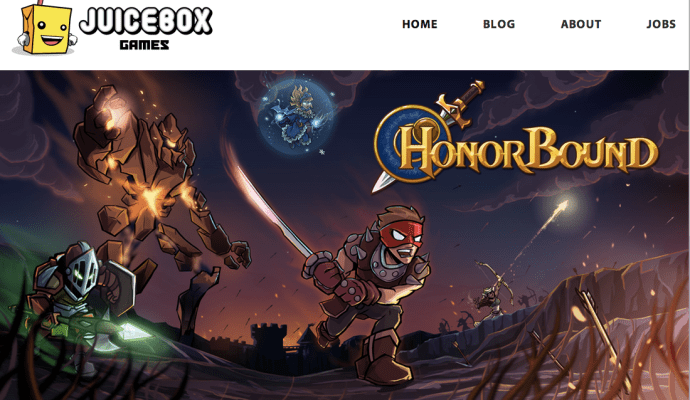Three former Zynga developers have raised $2.5 million to build out their new gaming studio, JuiceBox Games, on the back of the release of their first gaming title HonorBound.
With 3 million downloads and counting, JuiceBox’s first game is already generating revenue for the company. The game is ranked 94 on the list of top-grossing apps with a daily revenue estimate of $14,726 and 2,261 daily downloads, according to the site, ThinkGaming.
Those numbers were attractive enough to ensnare a clutch of top venture capital investors like Initial Capital, General Catalyst, Index Ventures, and Maveron, and individual investors like Zynga founding team member Scott Dale and former Electronic Arts chief executive John Riccitiello.
The investment comes even as many venture capital firms have seemingly soured on the gaming market. “This was my first time raising money for a company and it seemed really hard to raise money for this,” says Michael Martinez, the JuiceBox Games chief executive and founder.
Martinez previously worked as a senior product manager at Zynga, developing the Zynga Poker and FarmVille franchises, and was one of the first employees at the company working on its breakout FarmVille 2 hit. Joining him in the JuiceBox are two other Zynga veterans; Jason McGuirk, who serves as the company’s chief technology officer and its creative director, Zak Pytlak.
 “If there was a team that people should invest in or place a bet on it would be us,” says Martinez. “I had one VC ask me “How do you become a billion dollar business?” And while I’m confident in our plan to get to hundreds of millions of dollars in revenue, for that next step we’ll just have to see.”
“If there was a team that people should invest in or place a bet on it would be us,” says Martinez. “I had one VC ask me “How do you become a billion dollar business?” And while I’m confident in our plan to get to hundreds of millions of dollars in revenue, for that next step we’ll just have to see.”
While the fundraising process was an education for Martinez, at least one of his investors needs no lessons in the potential money that exists in the gaming world. Index Ventures has seen some big wins with Supercell and King.
“It is a hits-driven business,” Martinez says of the gaming industry. “When you make a good enough game, which still absolutely comes down to the team and the game itself, it can produce numbers that allow the game to grow incredibly.”
So what is the game? With its first title, JuiceBox drew inspiration from Asian card-based games like Pokemon and the blood-soaked world depicted in HBO’s “Game of Thrones”.
Players put together a cadre of heroes and then travel through the HonorBound world looking to conquer territory and defeat other cadres of characters. There’s also an asynchronous multi-player aspect to the game where players can challenge each other.
The company says it created more than 500 character art pieces in its in-house studio to make the game seem more animated — a nod to the company’s target audience of mid-core gamers (folks who tend to spend a lot of time playing games, but aren’t buying gear and spending hours in front of screens).
Part of the reticence from investors in backing gaming companies stems from the sheer profusion of games now available on Android, Amazon, and iOS.
“It is terrifying to how many games are being released on a weekly basis,” says Martinez. “I went to GDC right after our game launched and I was like… holy shit. Thank god I didn’t go to these conferences and see how many games are launched.”
However, 90% of those games don’t have a chance, according to Martinez. “Either the team is too small, the game isn’t designed well, or the business behind the game is fundamentally flawed.”
And it’s not as if there aren’t recent examples of highly successful games launching in app stores.
While the game is free to play and gamers can advance naturally through HonorBound without having to pay for anything, JuiceBox does have ways to separate players from their cash. PLayers are able to buy heroes in the game, instead of having to capture them, or buy experience, resources and tools, and money. “Everything is for sale, but nothing is only for sale,” says Martinez.
That business model is an extension of the lessons that Martinez and his crew learned at Zynga. “Our team grew up together making social games at Zynga. We understand how to apply the freemium model, and are applying it to these new games that we love to play.”
